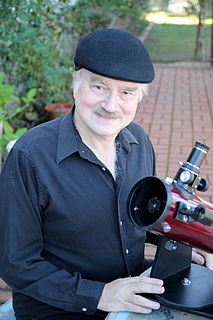A Quote by Letitia Elizabeth Landon
sight-seeing gratifies us in different ways. First, there is the pleasure of novelty; secondly, either that of admiration or fault-finding - the latter a very animated enjoyment.
Related Quotes
There are three sorts of pleasures which are advantageous, and three which are injurious. Finding pleasure in the discriminating study of ceremonies and music, finding pleasure in discussing the good points in the conduct of others, and finding pleasure in having many wise friends, these are advantageous. But finding pleasure in profligate enjoyments, finding pleasure in idle gadding about, and finding pleasure in feasting, these are injurious.
I do think that animated films have the ability to touch you someplace. There is something about live action movies that is different because we know the characters are real people, so they always stay flawed for us somehow. But animated films touch us in a very clear, uncomplicated place. They have that ability. And an animated character can make an expression in a way humans can't do.
If the objects who serve us feel ecstacy, they are much more often concerned with themselves than with us, and our own enjoyment is consequently impaired. The idea of seeing another person experience the same pleasure reduces one to a kind of equality which spoils the unutterable charms that come from despotism.
There is scarcely an occurrence in nature which, happening at a certain time, is not looked upon by some persons as a prognosticator either of good or evil. The latter are in the greatest number, so much more ingenious are we in tormenting ourselves than in discovering reasons for enjoyment in the things that surround us.
He has great tranquillity of heart who cares neither for the praises nor the fault-finding of men. He will easily be content and pacified, whose conscience is pure. You are not holier if you are praised, nor the more worthless if you are found fault with. What you are, that you are; neither by word can you be made greater than what you are in the sight of God.
Envy and resentment are terribly corrosive passions. To suffer at the sight or even the thought of others' enjoyment of life makes one a committed enemy of human happiness. Such people end up being practically a curse upon the human race. They vandalize life, exerting themselves not in the pursuit of gain or pleasure, but to hinder others' enjoyment.
Vanity is really the least bad and most pardonable sort. The vain person wants praise, applause, admiration too much and is always angling for it. It is a fault, but a childlike and even (in an odd way) a humble fault. It shows that you are not yet completely contented with your own admiration. You value other people enough to want them to look at you. You are in fact still human.






































